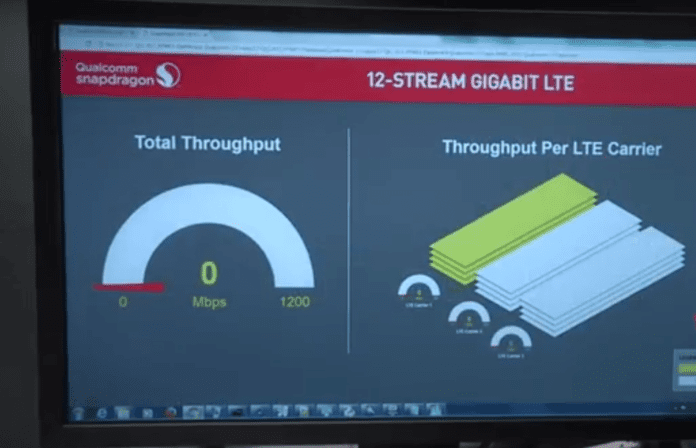T-Mobile, Nokia, Qualcomm hit 1.175 Gbps in test
Who says you have to wait for 5G to get gigabit-plus-per-second speeds to your mobile device? As operators continue to advance their LTE networks with carrier aggregation, 4×4 MIMO and 256 QAM–an imperative in the unlimited data era–T-Mobile US approached the 1.2 Gbps theoretical limit of Cat 18 in a new test that hit 1.175 Gbps in the downlink.
According to the carrier, the test aggregated 60 megahertz of spectrum and was supported by Nokia’s 4.9G AirScale base station and a mobile test device outfitted with Qualcomm’s Snapdragon X20 modem. The trio plans to demonstrate the test live during Mobile World Congress Americas in San Francisco next week.
All four U.S. carriers are testing and deploying gigabit LTE technologies, as are dozens of global counterparts. Right now there aren’t any phones available that support Cat 18 connectivity, but there are six in-market devices that support Cat 16, which has a theoretical peak of 1 Gbps. All six of those devices use Qualcomm’s X16 LTE modem.
“User devices supporting these speeds are expected to be made commercially available in the first half of 2018,” Qualcomm Technologies EVP and president of Qualcomm CDMA Technologies Cristiano Amon said in a statement. “Using the Snapdragon X20 LTE modem we are breaking through the gigabit barrier, further enhancing network capacity and real user data rates.
Amon and T-Mobile CTO Neville Ray both described the test results as part of the long-term transition from LTE to 5G. “These tests with Nokia and Qualcomm Technologies prove that T-Mobile customers have a lot more speed to look forward to from our LTE network as we evolve to 5G.”

